
Arlon: The Enchanting Gateway to Belgian History
Nestled in the picturesque Ardennes region, Arlon is a hidden gem that offers a unique blend of history, culture, and natural beauty. As one of the oldest cities in Belgium, Arlon is steeped in rich history dating back to Roman times. Visitors can explore the remnants of this ancient past at the Archaeological Museum, which houses an impressive collection of Roman artifacts, or take a stroll through the city to admire the well-preserved medieval architecture. Arlon's charming old town is perfect for leisurely walks, with cobblestone streets lined with quaint shops, cafes, and historical landmarks. The Saint Donatus Church, perched on a hill, offers panoramic views of the city and the surrounding countryside. Don't miss the Grand Place, the heart of the city, where you can relax and enjoy local delicacies at one of the many outdoor terraces. Nature enthusiasts will be delighted by the lush landscapes surrounding Arlon. The nearby forested hills and valleys provide ample opportunities for hiking, cycling, and wildlife spotting. The Semois River, with its meandering course, is ideal for peaceful canoe trips and picnics along its banks. Arlon's blend of historical intrigue and natural splendor makes it a must-visit destination for travelers seeking a serene and enriching experience.
Local tips in Arlon
- Visit the Archaeological Museum to explore Arlon's rich Roman history.
- Take a walk to the Saint Donatus Church for panoramic views of the city.
- Enjoy local cuisine at the outdoor terraces in the Grand Place.
- Explore the lush landscapes surrounding Arlon for hiking and cycling.
- Plan a canoe trip on the Semois River for a peaceful experience.
Arlon: The Enchanting Gateway to Belgian History
Nestled in the picturesque Ardennes region, Arlon is a hidden gem that offers a unique blend of history, culture, and natural beauty. As one of the oldest cities in Belgium, Arlon is steeped in rich history dating back to Roman times. Visitors can explore the remnants of this ancient past at the Archaeological Museum, which houses an impressive collection of Roman artifacts, or take a stroll through the city to admire the well-preserved medieval architecture. Arlon's charming old town is perfect for leisurely walks, with cobblestone streets lined with quaint shops, cafes, and historical landmarks. The Saint Donatus Church, perched on a hill, offers panoramic views of the city and the surrounding countryside. Don't miss the Grand Place, the heart of the city, where you can relax and enjoy local delicacies at one of the many outdoor terraces. Nature enthusiasts will be delighted by the lush landscapes surrounding Arlon. The nearby forested hills and valleys provide ample opportunities for hiking, cycling, and wildlife spotting. The Semois River, with its meandering course, is ideal for peaceful canoe trips and picnics along its banks. Arlon's blend of historical intrigue and natural splendor makes it a must-visit destination for travelers seeking a serene and enriching experience.
When is the best time to go to Arlon?
Iconic landmarks you can’t miss
Van der Valk Hotel Luxembourg-Arlon
Experience luxury and convenience at Van der Valk Hotel Luxembourg-Arlon, your perfect base for exploring Belgium and beyond.
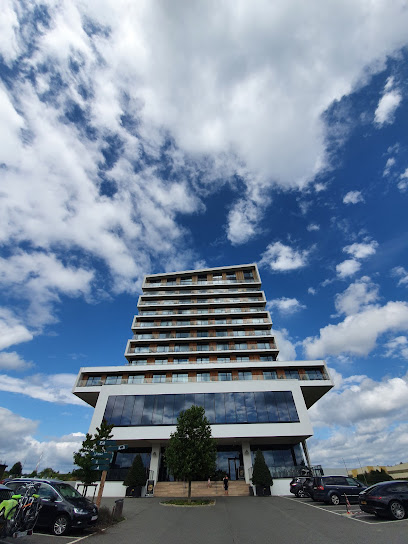
Espace Shopping Hydrion
Discover Espace Shopping Hydrion, Arlon's vibrant shopping mall featuring diverse retail, dining options, and a lively atmosphere for all visitors.
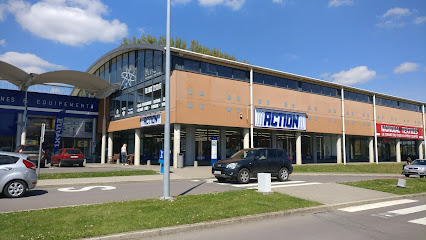
Eglise Saint Martin
Explore the architectural beauty and rich history of Eglise Saint Martin, a remarkable Catholic church and cultural landmark in Arlon, Belgium.
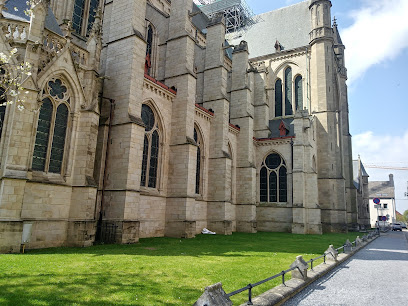
ibis Styles Arlon Porte du Luxembourg
Stylish hotel in the Ardennes, offering comfortable rooms, free parking, and easy access to Arlon and Luxembourg.
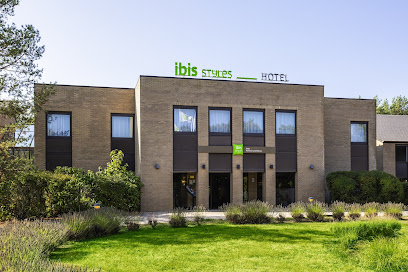
St. Donatus' Church, Arlon
Discover the historical allure of St. Donatus' Church in Arlon – a stunning blend of architecture and spirituality set in Belgium's scenic landscape.
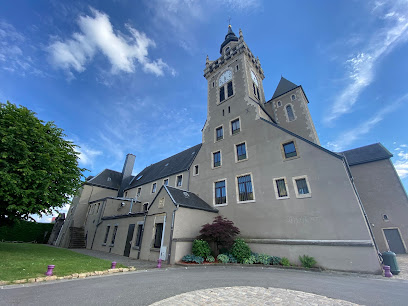
The Originals Hostellerie du Peiffeschof / Le ZINC à Arlon (Ex. Relais du Silence)
Experience the perfect blend of exquisite dining and luxurious accommodations at The Originals Hostellerie du Peiffeschof in Arlon, Belgium.
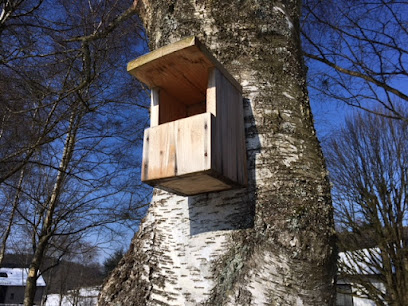
Le Palais - Lieu culturel et d'exposition de La Ville d'Arlon (ANCIEN palais de Justice)
Explore Le Palais, Arlon's vibrant cultural center, showcasing art exhibitions and live music in a historic venue that celebrates creativity and heritage.
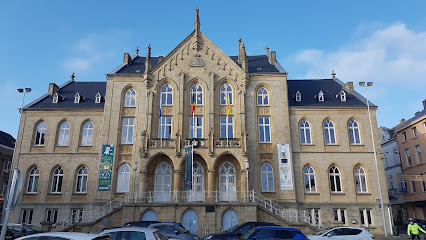
Musée Archéologique
Discover Arlon's Gallo-Roman heritage at the Musée Archéologique, featuring an impressive collection of artifacts and funerary monuments.
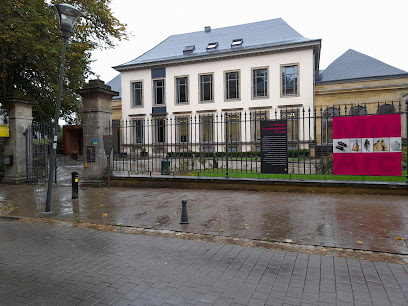
Gaspar Museum
Explore the captivating art collections and engaging exhibitions at the Gaspar Museum in Arlon, a cultural gem in Belgium's artistic landscape.
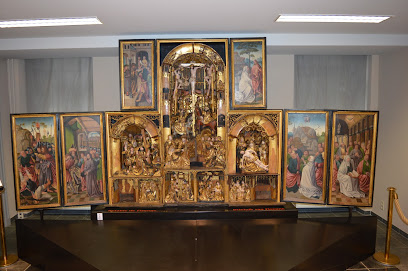
Escape Room Arlon
Immersive escape room adventures in Arlon, Belgium, offering thrilling challenges for all ages and skill levels.
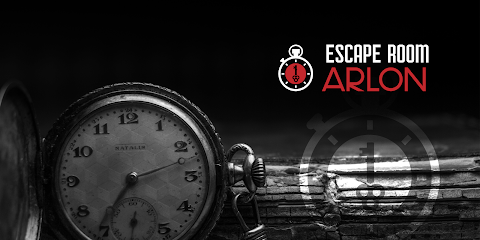
Abbaye de Clairefontaine
Explore the serene beauty and rich heritage of the Abbaye de Clairefontaine in Arlon, Belgium, an ideal retreat for reflection and tranquility.
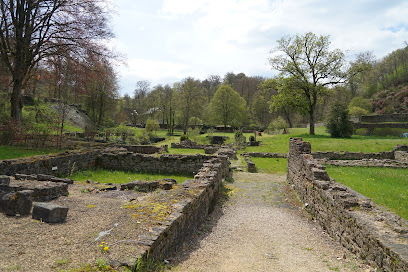
Coursdecouture Arlon
Your gateway to exploring Arlon's rich history, charming villages, and natural beauty in the heart of the Belgian Luxembourg province.
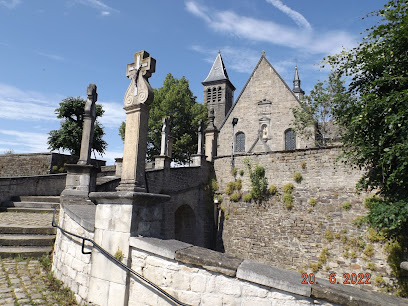
Tour Romaine
Explore the remnants of Arlon's Roman past at the Tour Romaine, a captivating historical landmark in the heart of Belgium.
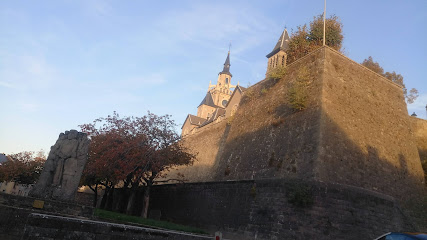
Belvédère De Saint Donat
Experience breathtaking views and rich history at Belvédère De Saint Donat, a hidden gem in Arlon, Belgium.
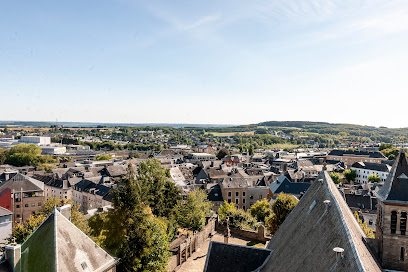
Chapelle Notre-Dame du Bel Amour de Clairefontaine
Explore the tranquil beauty of Chapelle Notre-Dame du Bel Amour de Clairefontaine in Arlon, a serene retreat with stunning gardens and rich architectural charm.
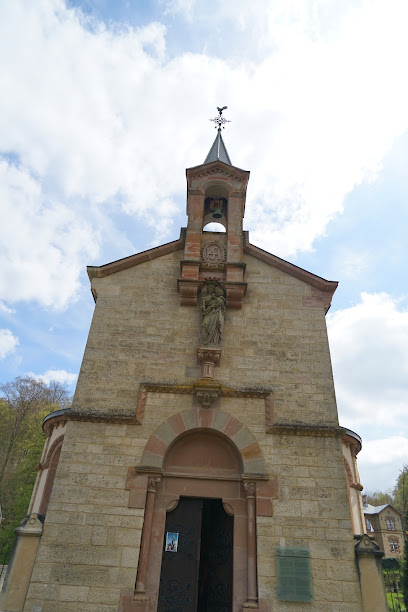
Unmissable attractions to see
Vianden Castle
Explore Vianden Castle, a majestic medieval fortress in Luxembourg, offering a captivating journey through centuries of history and architectural splendor.
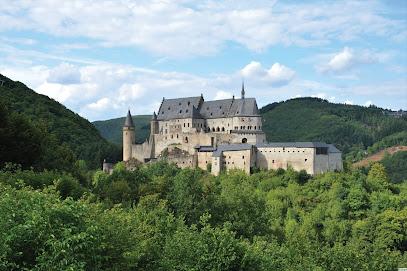
Bastogne War Museum
Explore the pivotal Battle of the Bulge through immersive exhibits and personal stories at the Bastogne War Museum.
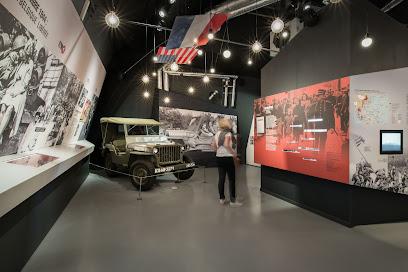
Casemates du Bock
Explore Luxembourg's underground fortress: a UNESCO World Heritage site with centuries of military history and stunning city views.
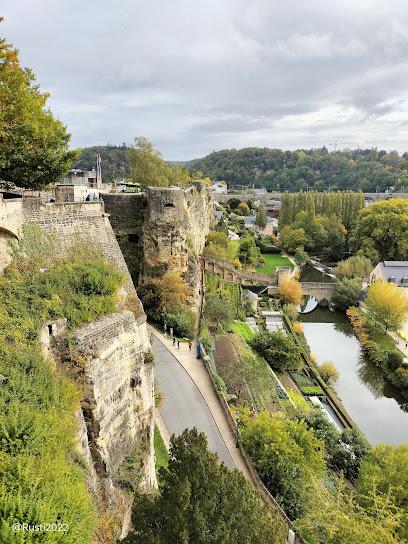
Pont Adolphe
Experience Luxembourg's iconic Pont Adolphe: a historic bridge offering stunning views and a glimpse into the city's rich heritage.
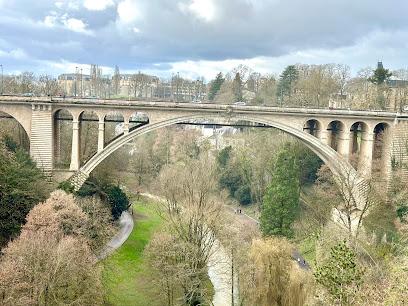
Panoramic Elevator of the Pfaffenthal
Discover breathtaking views of Luxembourg City aboard the Panoramic Elevator of the Pfaffenthal, a must-visit landmark for every traveler.
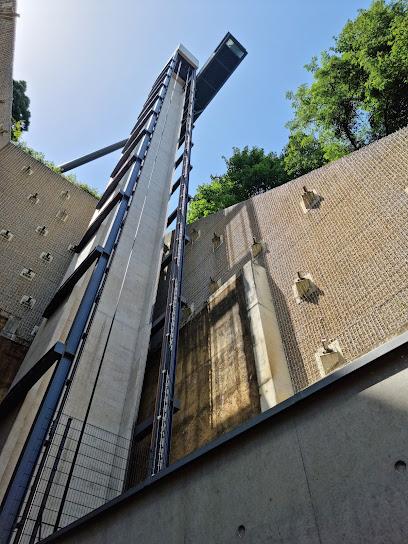
Cathédrale Notre-Dame
Explore the breathtaking Cathédrale Notre-Dame in Luxembourg City, a stunning blend of Gothic and Renaissance architecture rich in history and spiritual significance.
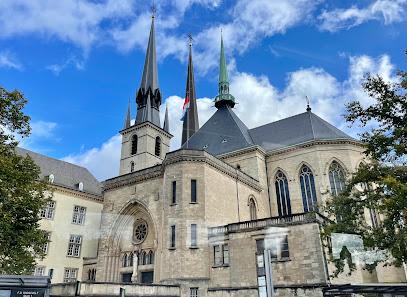
Palais Grand-Ducal
Discover the grandeur of Palais Grand-Ducal, a historical landmark in Luxembourg showcasing royal heritage and stunning architecture.
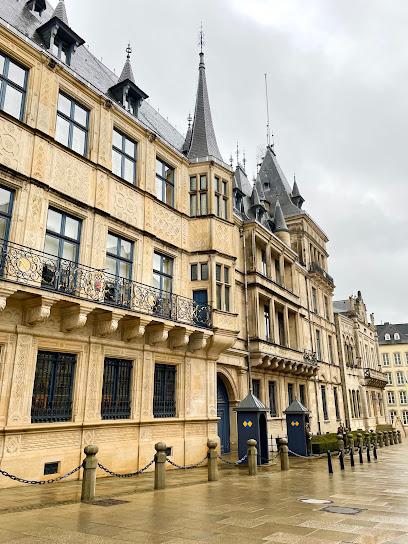
Schiessentümpel Waterfall
Experience the breathtaking beauty of Schiessentümpel Waterfall, a natural gem in Luxembourg's enchanting Mullerthal region, perfect for nature lovers and adventurers.

William Square
Experience the vibrant atmosphere of William Square in Luxembourg City, a historical landmark surrounded by culture and stunning architecture.
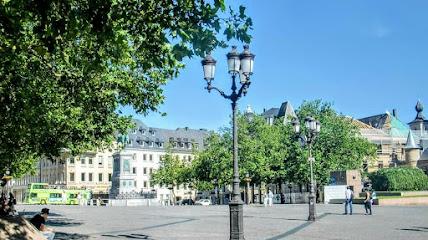
Mudam Museum of Modern Art
Explore the Mudam Museum of Modern Art in Luxembourg, a cultural hub showcasing contemporary art and stunning architecture.
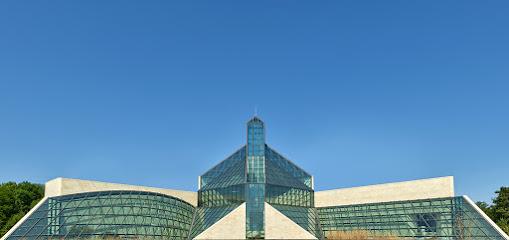
Philharmonie Luxembourg
Discover the architectural beauty and world-class acoustics of Philharmonie Luxembourg, a must-visit destination for music lovers in the heart of the city.
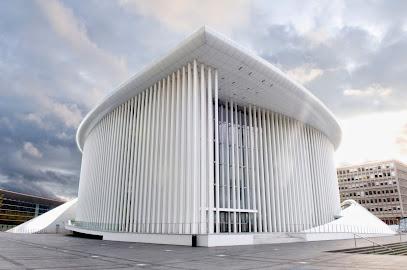
Neumünster Abbey
Explore Luxembourg's Neumünster Abbey: a historic cultural center hosting concerts, exhibitions, and seminars in a stunning setting.
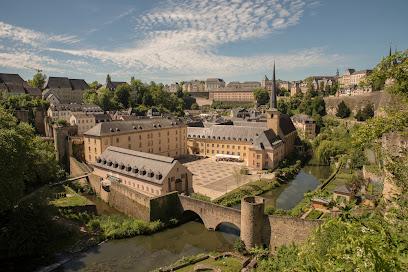
Place de la Constitution
Explore the historic Place de la Constitution in Luxembourg, a vibrant square boasting stunning views, rich history, and a lively atmosphere.
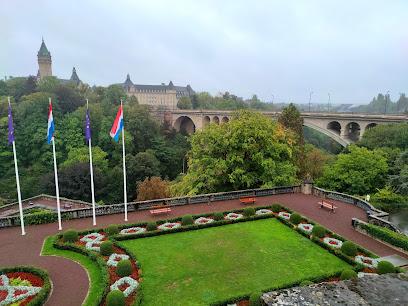
Bastogne Barracks
Explore the Bastogne Barracks, a remarkable war museum honoring WWII history and the heroes of the Battle of the Bulge in Bastogne, Belgium.
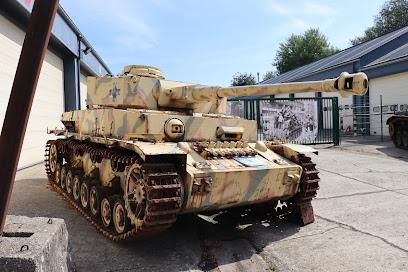
La Passerelle
Discover La Passerelle, Luxembourg's iconic 19th-century bridge offering stunning views and a glimpse into the city's rich history and architecture.
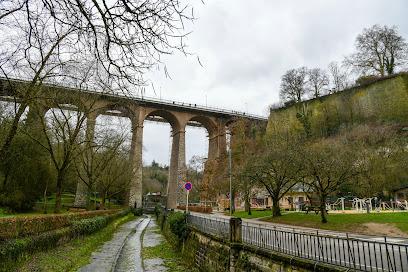
Essential places to dine
Pizza Hut Weyler
Experience the joy of delicious pizzas at Pizza Hut Weyler in Arlon, where family-friendly dining meets fast food convenience.
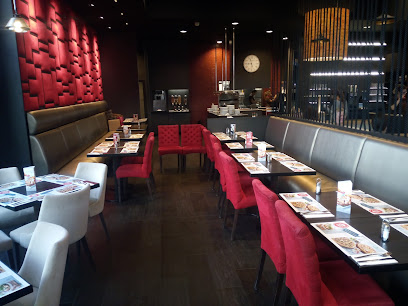
Lunch Garden Arlon
Experience authentic Belgian flavors at Lunch Garden Arlon – a delightful buffet restaurant perfect for families and travelers alike.
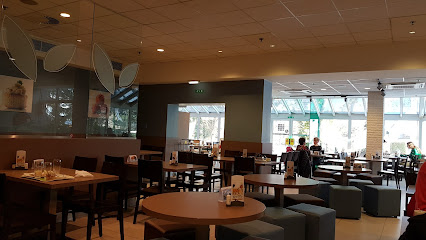
Royal Wok
Discover authentic Asian cuisine at Royal Wok in Arlon - a haven for food lovers seeking delightful Chinese, Japanese & Thai dishes.
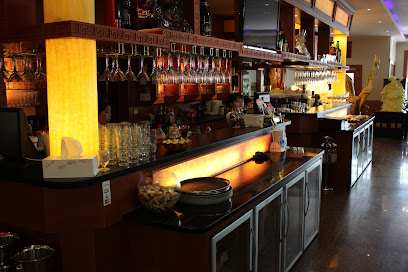
Pinocchio
Experience authentic Italian flavors at Pinocchio in Arlon – a cozy pizza haven for every food lover.
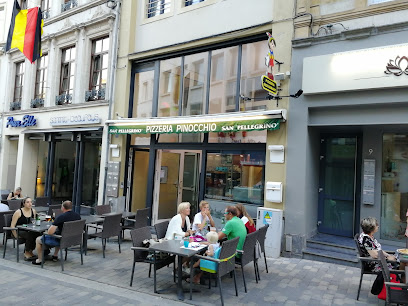
Saveur d'Asie
Discover authentic Asian flavors at Saveur d'Asie in Arlon – where every dish tells a story.
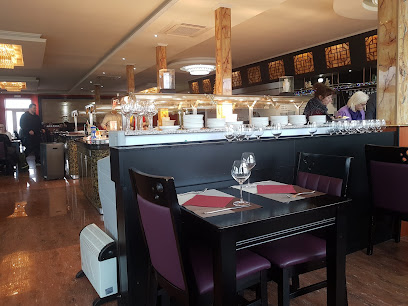
Trulli Restaurant Pizzeria
Discover authentic Italian flavors at Trulli Restaurant Pizzeria in Arlon, renowned for its delicious pizzas made from fresh ingredients.
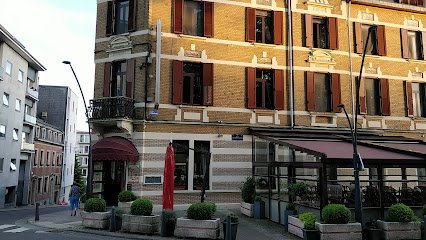
La Table de Frank | Restaurant Steinfort à Luxembourg
Experience exquisite modern French cuisine at La Table de Frank in Steinfort - a culinary gem in Luxembourg blending tradition and innovation.
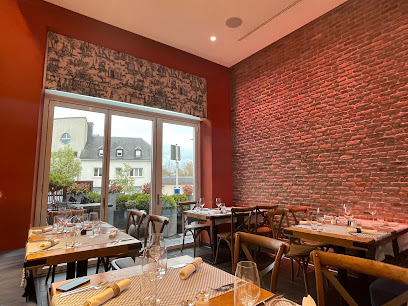
Faubourg 101
Discover the exquisite flavors of Belgium at Faubourg 101 – where modern cuisine meets local tradition.
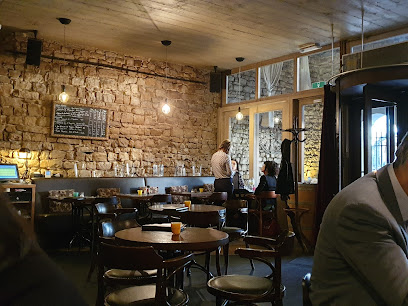
O'tacos Arlon
Discover O'tacos Arlon: where French-inspired fast food meets delicious customization for every taste.
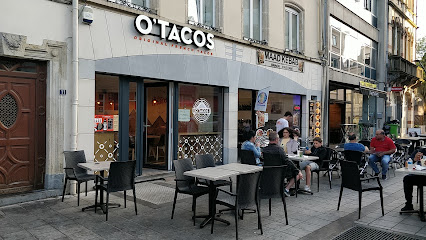
Chez Geppetto
Discover the flavors of France and Italy at Chez Geppetto in Arlon—where exquisite cuisine meets warm hospitality.
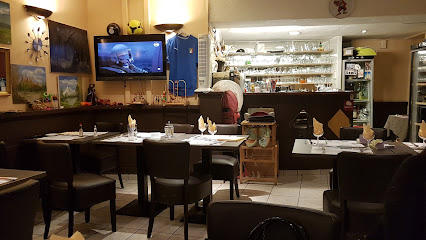
Pause Gourmande
Discover the culinary delights of Pause Gourmande in Arlon, where exquisite crepes meet exceptional service in a cozy atmosphere.
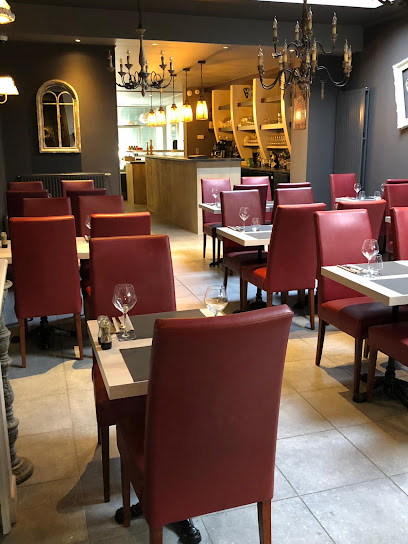
Kalinka
Discover authentic Russian cuisine at Kalinka in Arlon – where tradition meets taste for an unforgettable dining experience.
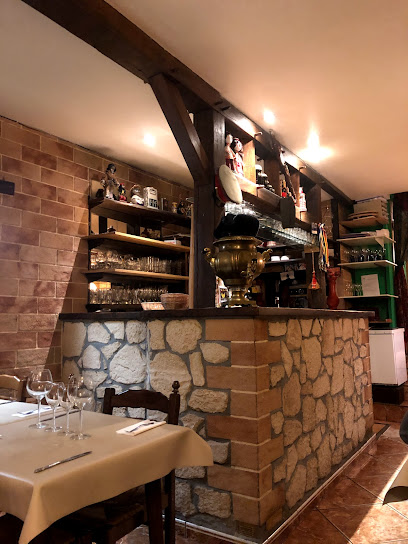
Le Greco
Experience exquisite Mediterranean cuisine at Le Greco in Arlon, where delightful flavors meet warm hospitality.
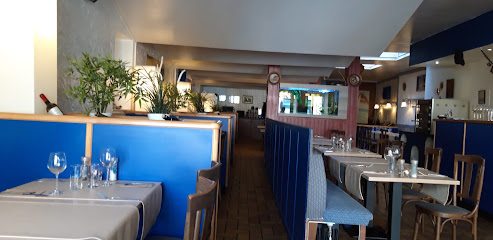
La Couscoussière
Experience authentic Moroccan flavors at La Couscoussière in Arlon - a culinary journey through North Africa awaits you.
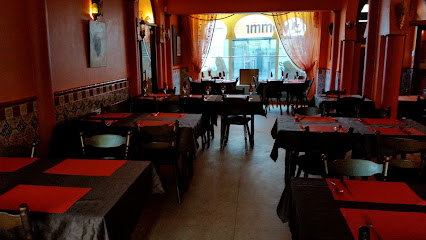
Pizzeria Ristorante Enzo Milano
Experience authentic Italian cuisine at Pizzeria Ristorante Enzo Milano in Arlon – where every pizza tells a story.
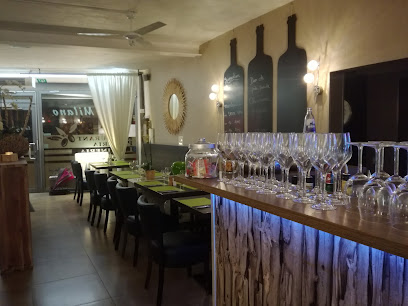
Markets, malls and hidden boutiques
Designer Outlet Luxembourg
Discover unbeatable deals on designer brands at Designer Outlet Luxembourg, a must-visit shopping paradise for fashion lovers.
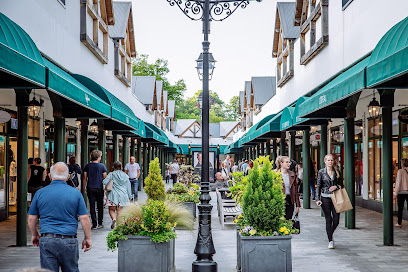
Espace Shopping Hydrion
Discover a vibrant shopping experience at Espace Shopping Hydrion in Arlon, offering diverse retail, dining, and entertainment options for every traveler.
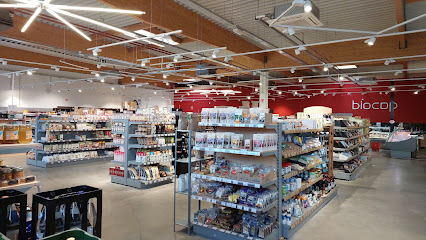
Club
Explore Club in Arlon for an eclectic mix of gifts, books, and games, where every corner holds a delightful surprise.
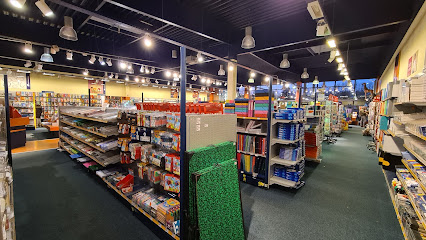
Action
Explore Arlon's vibrant Action gift shop for unique souvenirs, home goods, and creative supplies, perfect for any traveler seeking local treasures.
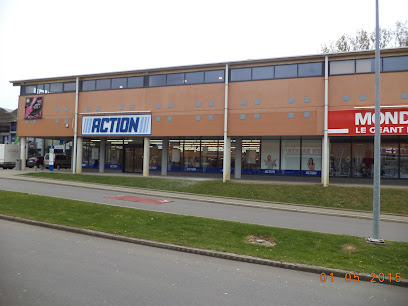
Extra Shop Arlon
Explore the unique offerings of Extra Shop Arlon, a premier home goods store in Belgium showcasing local craftsmanship and diverse home essentials.
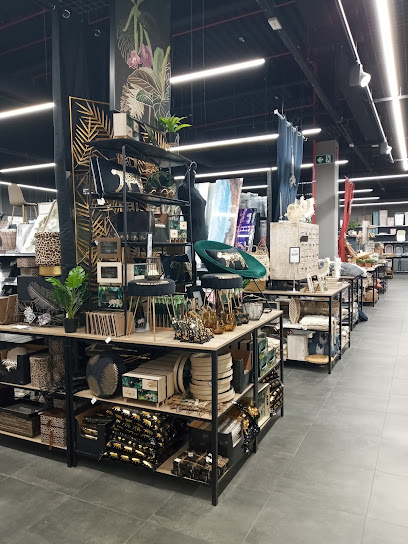
Jour de Fête
Discover the joy of celebration at Jour de Fête, Arlon's premier destination for balloons and costumes, perfect for all your festive needs.
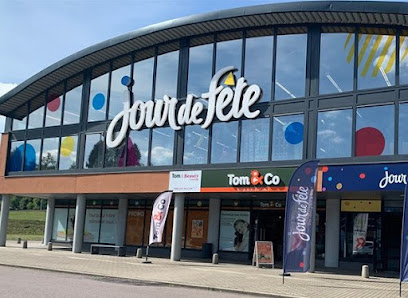
Vape In The City - Arlon
Explore Vape In The City in Arlon for an extensive selection of vaporizers and e-liquids, perfect for both beginners and experienced vapers.
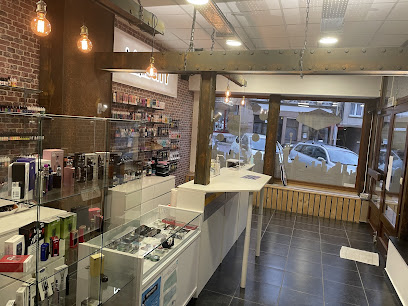
CosmÉthique / Dénicheuse de Tendances eco-friendly
Explore CosmÉthique in Arlon for eco-friendly cosmetics and organic beauty products that celebrate sustainability and conscious living.
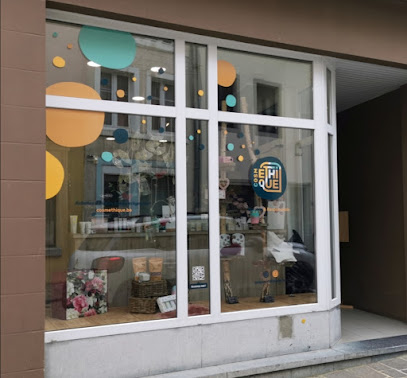
Canard Paon - du tiers et du quart
Discover a magical children's bookstore in Arlon, offering a captivating selection of books, games, and creative crafts for young readers.
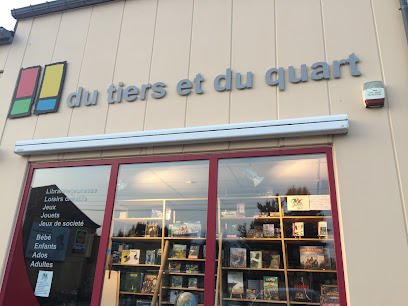
HEMA
Discover HEMA in Arlon: your one-stop shop for unique gifts, stylish clothing, and charming souvenirs that reflect the beauty of Belgium.
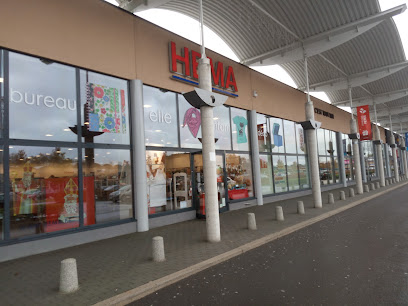
CASA Arlon
Explore CASA Arlon, a charming gift shop in Belgium offering unique home goods, garden furniture, and kitchen essentials for every taste.
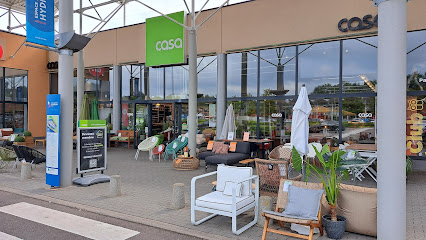
Sports Direct
Explore Sports Direct in Arlon for unbeatable athletic apparel, footwear, and sporting goods at great prices - perfect for your active adventure.

Epices & Tout
Explore Epices & Tout in Arlon, Belgium - your ultimate destination for gourmet groceries, organic delights, and exotic spices.
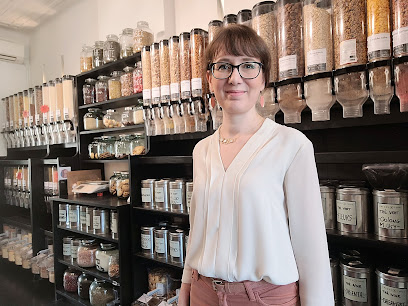
La fromagerie
Explore a world of exquisite flavors at La Fromagerie, Arlon's premier cheese shop, offering a delightful selection of local and international cheeses.
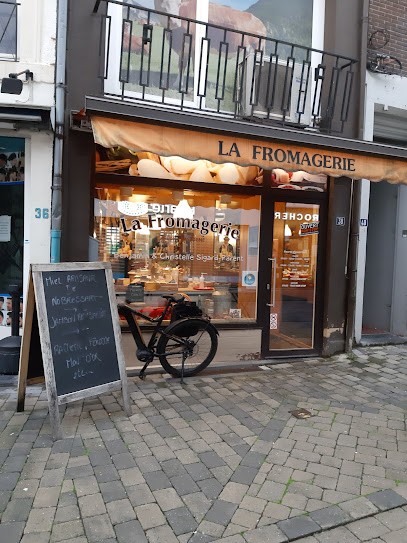
Bouquinerie Le Dalhia Noir
Discover the charm of Bouquinerie Le Dalhia Noir, where every book tells a story and each visit is a new adventure in literature.
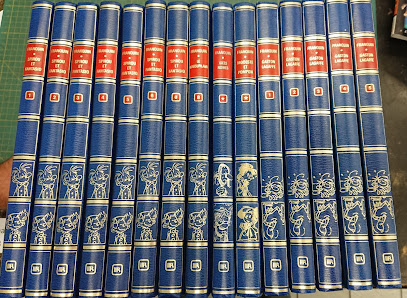
Essential bars & hidden hideouts
Le Capucin
Experience the authentic taste of Belgium at Le Capucin, Arlon's favorite frituur, known for its crispy fries and delicious fast food delights.
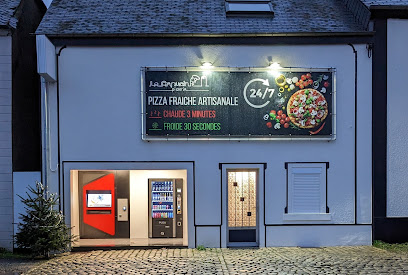
Soho English Pub
Discover Soho English Pub in Arlon - a charming Irish pub offering delightful drinks and a vibrant atmosphere for an unforgettable experience.
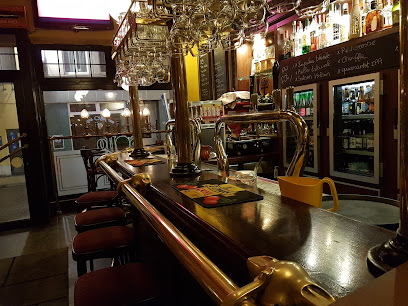
Coconuts
Discover Coconuts, a vibrant bar and café in Arlon, where delicious flavors and a lively atmosphere await every visitor.
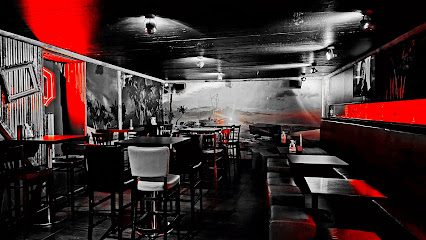
L'Insol!te
Discover Arlon's vibrant nightlife at L'Insol!te, a bar offering a delightful selection of drinks and a welcoming atmosphere.
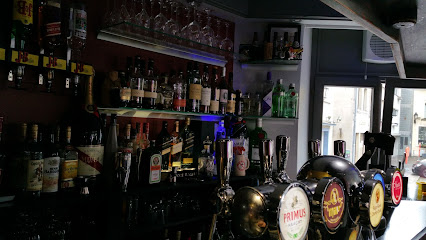
Le Venitien
Discover the vibrant charm of Le Venitien, a local bar in Arlon, Belgium, known for its inviting atmosphere and delightful drink selection.
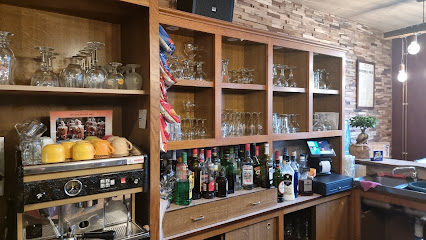
La Taverne - Tony & Lucy Café
Experience the heart of Belgian hospitality at La Taverne - Tony & Lucy Café, a cozy brasserie in Arlon serving delightful local cuisine.
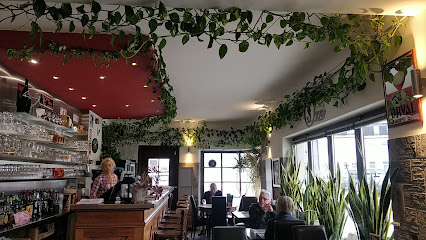
Brasserie Newzen
Discover the unique ambiance and culinary delights of Brasserie Newzen, a premier lounge destination in the heart of Arlon, Belgium.
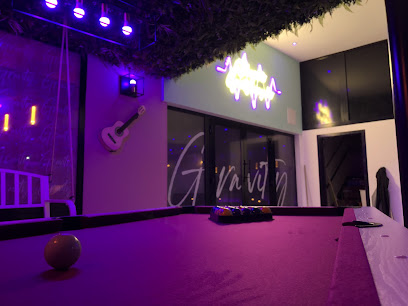
PlanU Arlon
Discover the lively ambiance of PlanU Arlon, a must-visit pub in Arlon, Belgium, offering a delightful selection of local beers and snacks.

Café Du Commerce Arlon
Discover the charm of Café Du Commerce in Arlon, where local culture meets a cozy bar experience, perfect for unwinding and socializing.
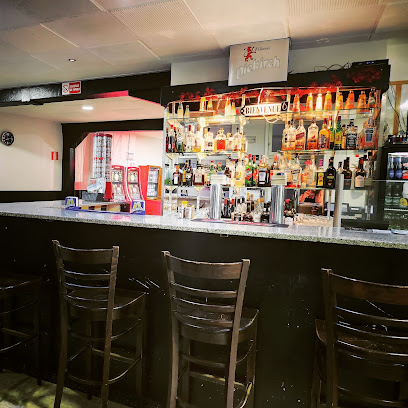
The Will and You Bar
Experience the vibrant nightlife of Arlon at The Will and You Bar, where local flavors meet a cozy atmosphere and friendly vibes.
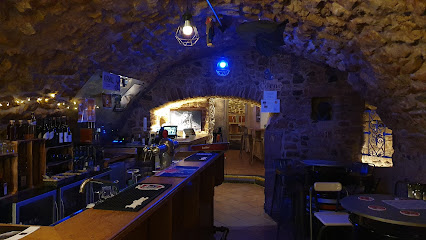
le wapiti redeviens çerf bramant
Discover Le Wapiti in Arlon: a cozy bar offering a delightful selection of drinks in a charming atmosphere perfect for relaxation.
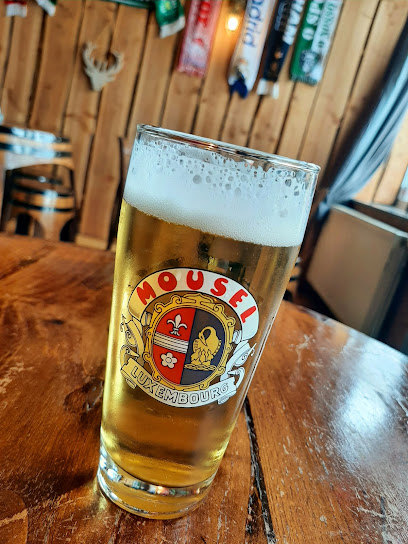
Café Mousel
Experience the charm of Café Mousel in Arlon, where delightful drinks meet warm Belgian hospitality in a cozy atmosphere.

Serbel - vino & rakia
Experience the essence of Arlon at Serbel, where exquisite wines and authentic rakia create an unforgettable tasting journey.
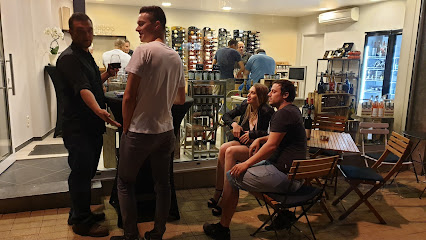
L'Esterel Vip Bar
Discover the cozy charm of L'Esterel Vip Bar in Arlon, offering a delightful selection of beverages in a warm and inviting atmosphere.
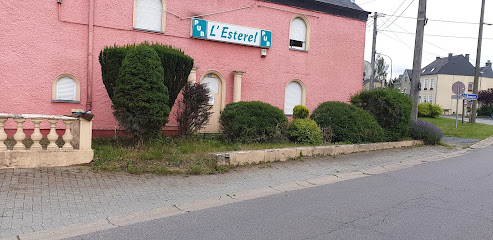
Local Phrases
-
- HelloBonjour
[bohn-zhoor] - GoodbyeAu revoir
[oh rev-wahr] - YesOui
[wee] - NoNon
[nohn] - Please/You're welcomeS'il vous plaît/De rien
[seel voo pleh/duh ryehn] - Thank youMerci
[mehr-see] - Excuse me/SorryExcusez-moi/Désolé
[ehk-skyoo-zay mwa/day-zoh-lay] - How are you?Comment ça va?
[koh-mohn sah vah] - Fine. And you?Bien. Et vous?
[byen. ay voo] - Do you speak English?Parlez-vous anglais?
[par-lay voo ahn-glay] - I don't understandJe ne comprends pas
[zhuh nuh kohm-prahnd pah]
- HelloBonjour
-
- I'd like to see the menu, pleaseJe voudrais voir la carte, s'il vous plaît
[zhuh voo-dray vwar lah kart, seel voo pleh] - I don't eat meatJe ne mange pas de viande
[zhuh nuh mahnzh pah duh vyand] - Cheers!Santé!
[sahn-tay] - I would like to pay, pleaseJe voudrais payer, s'il vous plaît
[zhuh voo-dray pay-ay, seel voo pleh]
- I'd like to see the menu, pleaseJe voudrais voir la carte, s'il vous plaît
-
- Help!Au secours!
[oh seck-oohr] - Go away!Allez-vous en!
[ah-lay voo zahn] - Call the Police!Appelez la police!
[ah-puh-lay lah poh-lees] - Call a doctor!Appelez un médecin!
[ah-puh-lay uh mayd-sahn] - I'm lostJe suis perdu
[zhuh swee pair-doo] - I'm illJe suis malade
[zhuh swee mah-lahd]
- Help!Au secours!
-
- I'd like to buy...Je voudrais acheter...
[zhuh voo-dray zah-sheh...] - I'm just lookingJe regarde simplement
[zhuh ruh-gahrd sahm-pluh-mahn] - How much is it?Combien ça coûte?
[kohm-byen sah koot] - That's too expensiveC'est trop cher
[say troh shair] - Can you lower the price?Pouvez-vous baisser le prix?
[poo-veh voo beh-say luh pree]
- I'd like to buy...Je voudrais acheter...
-
- What time is it?Quelle heure est-il?
[kel uhr ay-teel] - It's one o'clockIl est une heure
[eel ay tun uhr] - Half past (10)Dix heures et demie
[dees uhr ay duh-mee] - MorningMatin
[mah-tahn] - AfternoonAprès-midi
[ah-pray mee-dee] - EveningSoir
[swahr] - YesterdayHier
[ee-air] - TodayAujourd'hui
[oh-zhoor-dwee] - TomorrowDemain
[duh-mahn] - 1Un
[uhn] - 2Deux
[duh] - 3Trois
[twah] - 4Quatre
[kat] - 5Cinq
[sank] - 6Six
[sees] - 7Sept
[set] - 8Huit
[weet] - 9Neuf
[nuff] - 10Dix
[dees]
- What time is it?Quelle heure est-il?
-
- Where's a/the...?Où est...?
[oo ay...] - What's the address?Quelle est l'adresse?
[kel ay lah-dress] - Can you show me (on the map)?Pouvez-vous me montrer (sur la carte)?
[poo-veh voo muh mohn-tray (soor lah kart)] - When's the next (bus)?Quand est le prochain (bus)?
[kahnd ay luh proh-shahn (bus)] - A ticket (to ....)Un billet (pour ....)
[uhn bee-yay (poor)]
- Where's a/the...?Où est...?
History of Arlon
-
Arlon, known in ancient times as Orolaunum, boasts a rich Roman heritage. The Romans recognized the strategic importance of this location and established a settlement here in the 1st century AD. Visitors can explore the remnants of Roman baths and villas, showcasing the classical architecture that once flourished in this region.
-
During the Middle Ages, Arlon became a fortified town and the seat of the County of Arlon. The construction of the medieval castle in the 9th century marked an era of defense and power. The county played a crucial role in regional politics, often caught in the power struggles between the Duchy of Luxembourg and the Kingdom of France.
-
Arlon's strategic significance continued through the Spanish and Austrian Netherlands periods. In the 16th and 17th centuries, the town saw the construction of impressive Baroque buildings and churches, reflecting the prosperity brought by its advantageous position in European trade routes.
-
The French Revolutionary Wars brought significant change to Arlon as it was incorporated into the French Republic. The Napoleonic era left its mark with the construction of new administrative buildings and the introduction of the Napoleonic Code, which reformed the local legal framework.
-
The 19th century witnessed the Industrial Revolution transforming Arlon into a hub of economic activity. The development of the railway network connected the town to major industrial centers, fostering growth in manufacturing and commerce. The period also saw the emergence of new educational institutions and cultural landmarks.
-
Arlon experienced the turmoil of both World Wars, with significant impacts on its population and infrastructure. Post-World War II reconstruction efforts led to modernization and urban development. Today, Arlon is a vibrant town that harmoniously blends its historical legacy with contemporary life.
-
Arlon is renowned for its rich cultural heritage, including traditional festivals such as the Maitrank Festival, celebrating the local drink made from the sweet woodruff plant. The town's museums, such as the Gaspar Museum, offer insights into its artistic and historical journey, making it a must-visit for culture enthusiasts.
Arlon Essentials
-
Arlon, located in the Belgian province of Luxembourg, is accessible by various means of transport. The closest major airport is Luxembourg Airport, about 30 kilometers away. From the airport, you can take a direct train to Arlon, which takes approximately 30 minutes. Alternatively, Brussels Airport is about 200 kilometers from Arlon, and you can reach Arlon by train in around 2.5 hours. The city is well-connected by train with regular services from Brussels, Luxembourg, and other major cities. If you're driving, Arlon is accessible via the E411 motorway.
-
Within Arlon, public transportation includes buses operated by TEC (Transport En Commun). Buses are an efficient way to navigate the city and its outskirts. Taxis are also available but can be more expensive. For those who prefer to explore at their own pace, renting a bicycle or car is an option. The city is pedestrian-friendly, and many of its attractions are within walking distance.
-
Belgium's official currency is the Euro (EUR). Credit and debit cards are widely accepted in hotels, restaurants, and shops. However, it is advisable to carry some cash, especially when visiting smaller establishments and local markets. ATMs are readily available throughout Arlon for cash withdrawals.
-
Arlon is generally a safe city for tourists. However, as with any travel destination, it is wise to take standard precautions. Avoid walking alone at night in poorly lit areas and keep an eye on your belongings in crowded places. While Arlon does not have specific high-crime areas targeting tourists, staying alert and aware of your surroundings is always advisable.
-
In case of an emergency, dial 112 for immediate assistance. Arlon has a local police station and medical facilities available to assist tourists. It is recommended to have travel insurance that covers medical emergencies. Pharmacies are available throughout the city for over-the-counter medications and minor health concerns.
-
Fashion: Do dress smart-casual, especially when dining out. Avoid overly casual attire in more formal settings. Religion: Do respect local customs, particularly when visiting churches. Dress modestly and avoid loud behavior. Public Transport: Do validate your ticket before boarding buses. Don’t eat or drink on public transport. Greetings: Do greet people with a handshake. A simple 'Bonjour' or 'Bonsoir' is appropriate. Eating & Drinking: Do try local specialties like 'Tarte au Riz'. Don’t rush your meals; dining is a social activity here.
-
To experience Arlon like a local, visit the weekly Saturday market at Place Léopold, where you can buy fresh produce and local delicacies. Engage with the locals, who are generally friendly and keen to share their culture. Explore the Gallo-Roman Museum for a deep dive into the local history. Don’t miss the opportunity to hike in the nearby Ardennes forest, offering beautiful landscapes and a peek into Belgium’s natural beauty.
Trending Landmark in Arlon
-
Van der Valk Hotel Luxembourg-Arlon
-
Espace Shopping Hydrion
-
Eglise Saint Martin
-
ibis Styles Arlon Porte du Luxembourg
-
St. Donatus' Church, Arlon
-
The Originals Hostellerie du Peiffeschof / Le ZINC à Arlon (Ex. Relais du Silence)
-
Le Palais - Lieu culturel et d'exposition de La Ville d'Arlon (ANCIEN palais de Justice)
-
Musée Archéologique
-
Gaspar Museum
-
Escape Room Arlon
-
Abbaye de Clairefontaine
-
Coursdecouture Arlon
-
Tour Romaine
-
Belvédère De Saint Donat
-
Chapelle Notre-Dame du Bel Amour de Clairefontaine
Nearby Cities to Arlon
-
Things To Do in Luxembourg City
-
Things To Do in Dudelange
-
Things To Do in Diekirch
-
Things To Do in Wiltz
-
Things To Do in Vianden
-
Things To Do in Remich
-
Things To Do in Clervaux
-
Things To Do in Grevenmacher
-
Things To Do in Echternach
-
Things To Do in La Roche-en-Ardenne
-
Things To Do in Durbuy
-
Things To Do in Spa
-
Things To Do in Dinant
-
Things To Do in Liege
-
Things To Do in Namur










